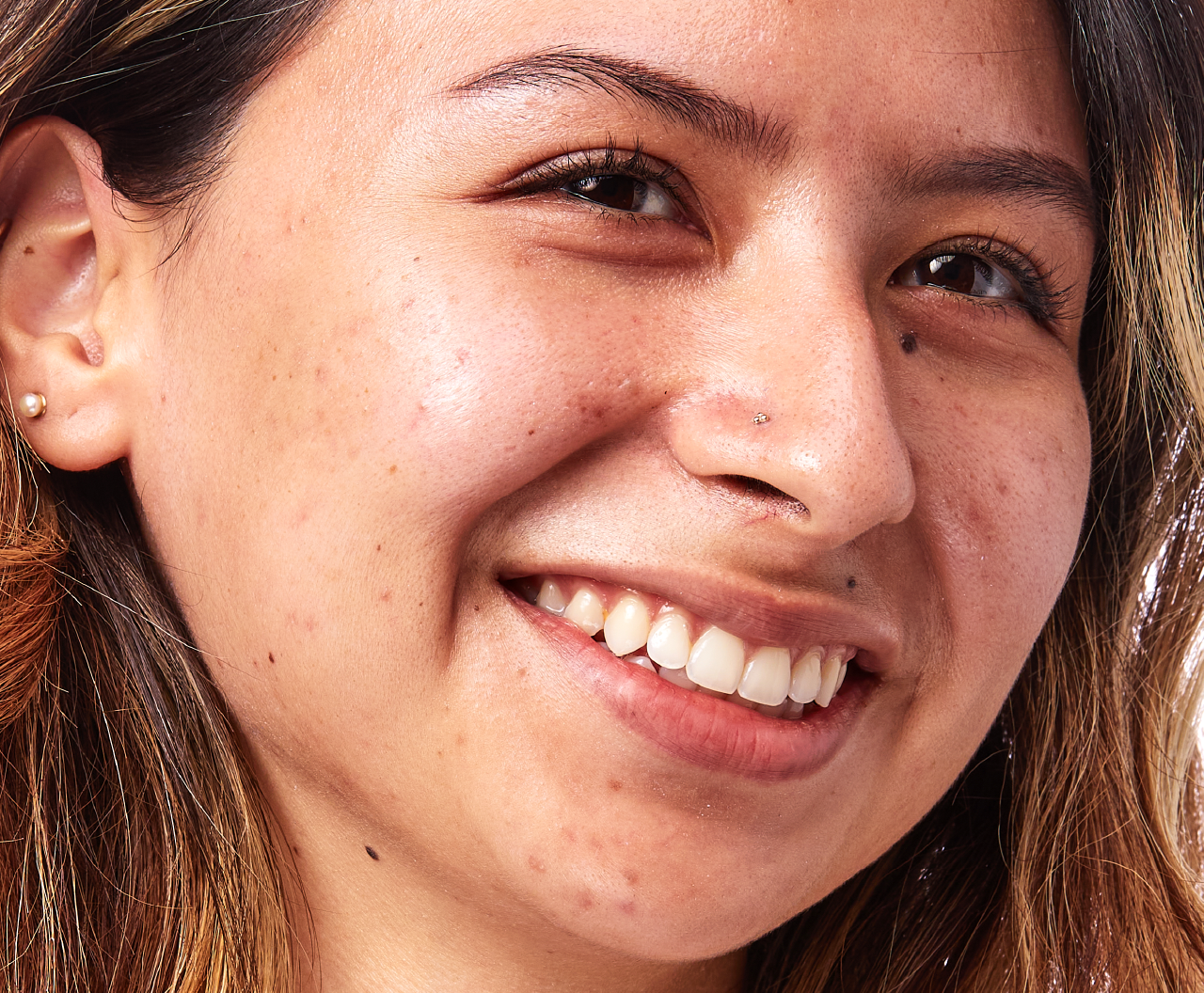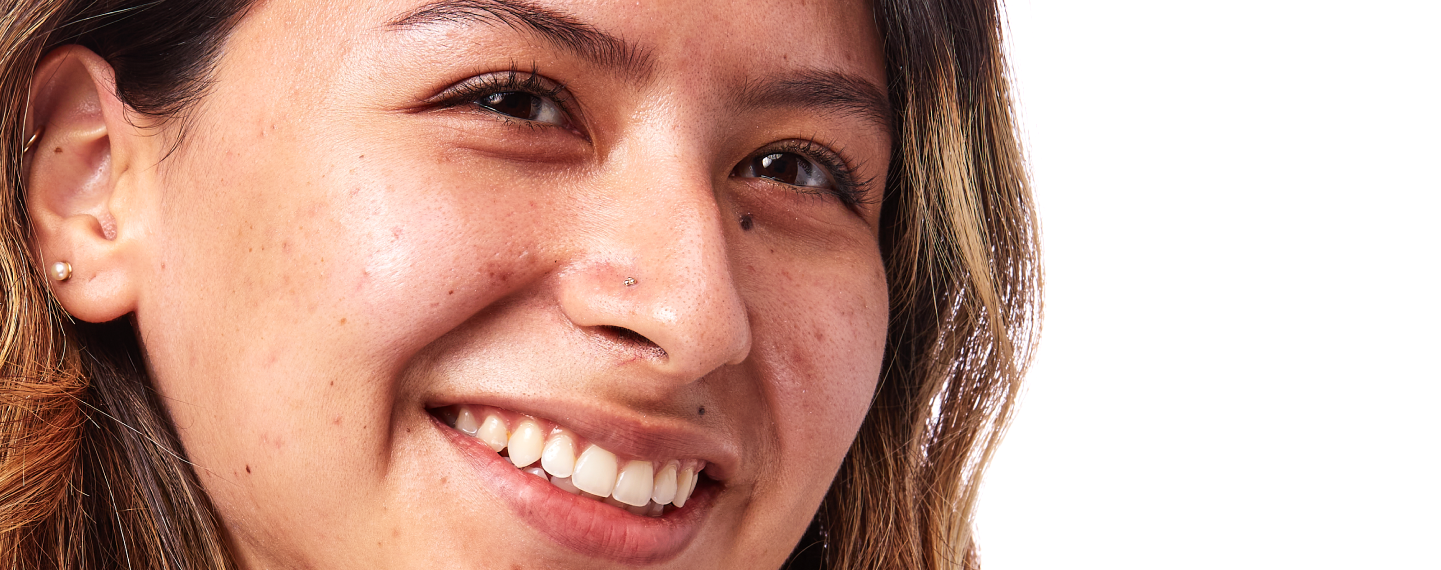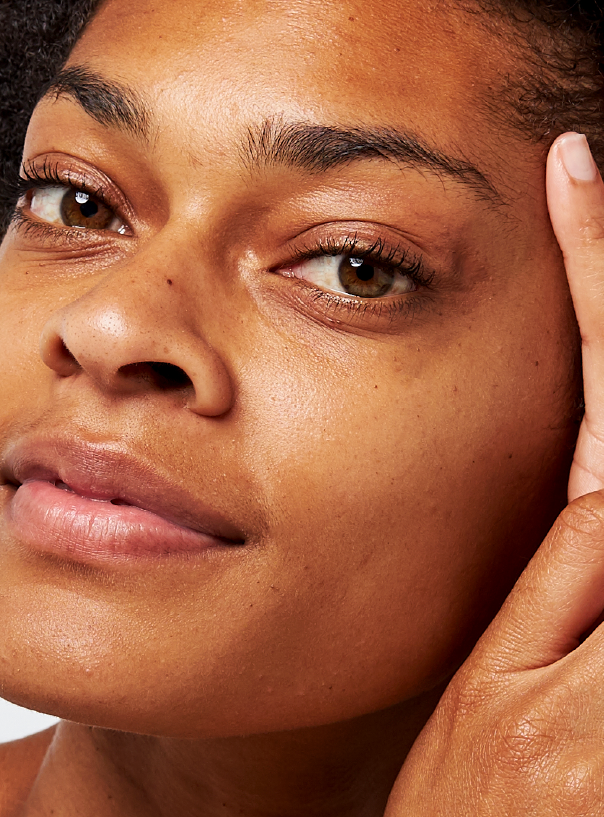Education
Fact or Fiction: Acne And Makeup


SHARE
Education
Fact or Fiction: Acne And Makeup
Medically reviewed by Aimee Paik, MD
Written by Apostrophe Team
Last updated 4/5/2024
You’re breaking out from acne and your first reaction is to cover it up with makeup. Unfortunately, sometimes those same makeup products you use to cover your acne could be the reason you’re breaking out in the first place. So what do you need to know?
Can makeup really cause acne?
Yes. Acne from makeup occurs in about one in three adult women. This type of acne has its own name: acne cosmetica. Makeup can cause bacteria buildup and skin irritation resulting in blackheads, whiteheads, pimples, and inflammation. Often these breakouts occur on chin, forehead, and cheek area, but can happen anywhere makeup touches.
Tips to avoiding acne from makeup:
Read labels carefully: Look for makeup products that state they are non-comedogenic, hypoallergenic, and/or fragrance-free.
Apply with care: Be gentle with application and do not try to massage foundation or concealer.
Choose powder over liquid-based makeup: Many liquid makeup products are oil-based. Unlike powder-based makeup that can help absorb excess oil!
Wash your brushes: Applicators can also build up bacteria overtime. If your brushes are dirty, you could be applying that bacteria directly on your face!
Remove your makeup EVERY night: Sleeping with makeup on is one of the easiest ways to clog your pores. Dermatologists recommend washing your face with a gentle cleanser and not to scrub your face.
Don’t get into an acne-makeup cycle:
Your makeup may or may not be the primary cause of your breakouts, but continually covering up your acne is just making it worse. Applying makeup irritates your skin, which can cause inflammation and more severe acne. Likewise, the makeup makes it even harder for your pores to become unclogged. More makeup will cause more acne, and then more makeup, and the cycle continues.
Stop the makeup, then stop the acne
If you see a clear connection between makeup usage and your acne, taking a break from cosmetic products is the best way to prevent your skin condition from worsening. Makeup can cover your breakouts, but if you want to stop breaking out all together, you might need an acne treatment.
Instead, let your skin breathe whenever it can. Wear as little makeup as you can handle. And on those days when you’re lounging, make sure there’s no residual makeup from the day/night before. If your acne does not improve, you probably need an acne specific treatment. If you have moderate to severe acne, you most likely need prescription strength medications, to understand the root of the cause. You’re not in it alone - discuss with a dermatology provider your concerns to find a way to effectively treat acne from the source.
How do you break the acne/makeup cycle? Tweet us @hi_apostrophe!
1. Acne Cosmetica. Albert M. Kligman, MD, PhD; Otto H. Mills Jr., MA. JAMA Dermatology. https://jamanetwork.com/journals/jamadermatology/article-abstract/532944. Published December 1972. Accessed August 14, 2019.
Like what you just read? Sign up for our email list to get the scoop on skincare science delivered straight to your inbox.

Deep Dives
A dermatologist shares his thoughts on the recent studies about benzoyl peroxide and benzene.
Read More
Education
What is milia?
What is milia? Today, we’re jumping into one type of bump that you may have heard about most commonly in infants — milia.
Read More
Education
Best moisturizer for acne-prone skin
If you have combination acne-prone skin, figuring out which moisturizer is best for your skin might be tough. In this guide, we break down the best moisturizer for combination, acne-prone skin.
Read More